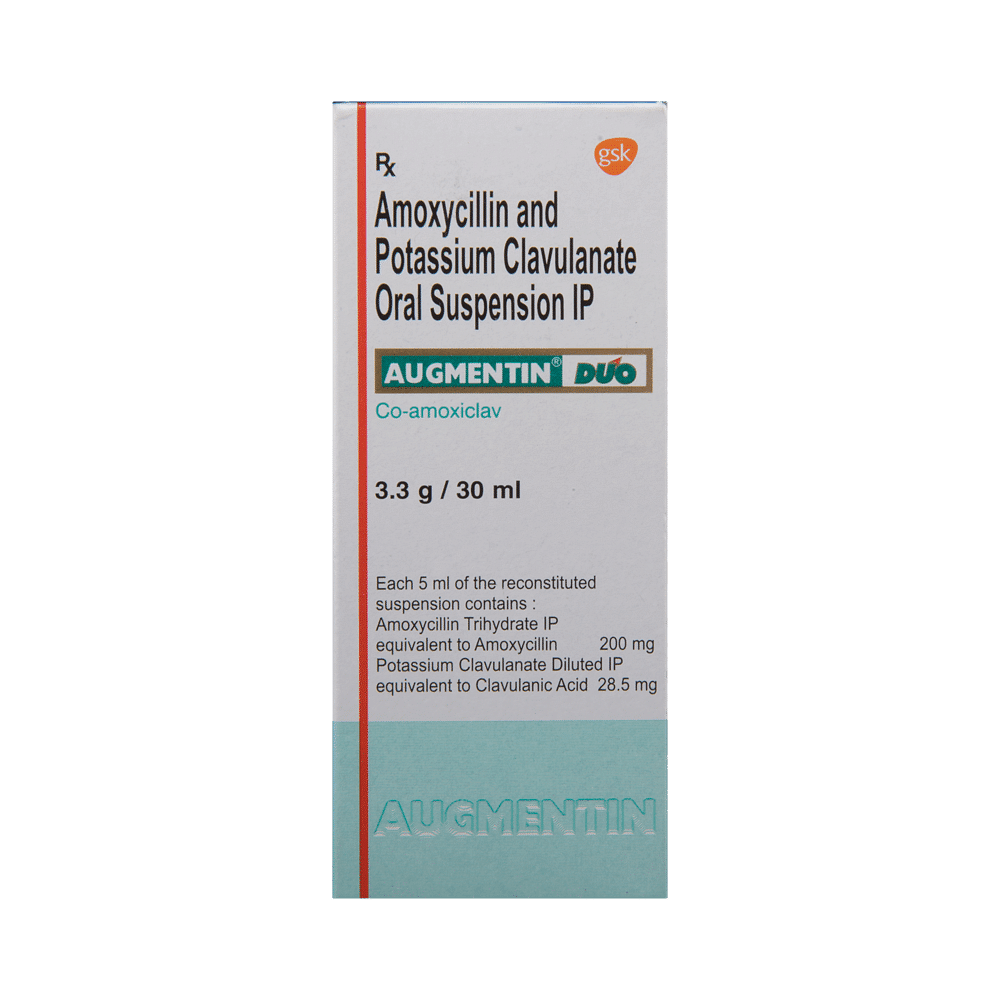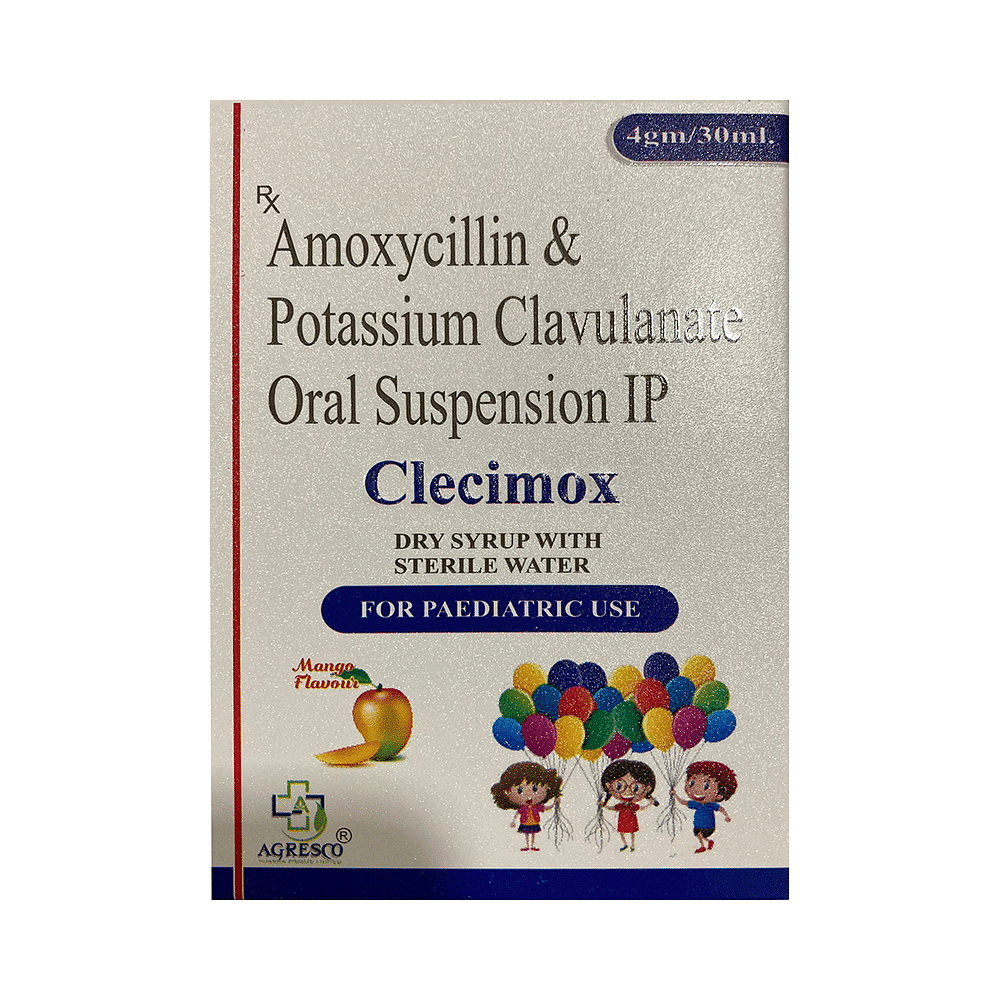
Felinclav Dry Syrup
Manufacturer
Felix Health Park
Salt Composition
Amoxycillin (200mg) + Clavulanic Acid (28.5mg)
Key Information
Short Description
Felinclav Dry Syrup is an antibiotic medicine used to treat bacterial infections in various parts of the body, including the ear, nose, throat, chest, lungs, teeth, skin, and urinary tract.
Dosage Form
Oral Suspension
Introduction
Felinclav Dry Syrup is an effective antibiotic used to treat a variety of bacterial infections. It is particularly useful for infections in the ear, nose, throat, chest, lungs, teeth, skin, and urinary tract. This medicine is capable of killing bacteria that have become resistant to other treatments, making it a valuable option for treating resistant tuberculosis. It is important to complete the entire course of antibiotics to prevent the bacteria from multiplying again or becoming resistant. Always consult a doctor before using this medication.
Directions for Use
Administer the prescribed dose of Felinclav Dry Syrup to your child as directed by the doctor. Ensure the child completes the entire course of antibiotics.
How it works
Felinclav Dry Syrup contains two active agents: amoxycillin and clavulanic acid. Amoxycillin prevents the formation of the bacterial cell wall, which is essential for the bacteria's survival. Clavulanic acid inhibits an enzyme (beta-lactamase) produced by resistant bacteria, making the combination effective against many types of infections.
Quick Tips
Your child must complete the entire course of antibiotics. Stopping too soon may cause the bacteria to multiply again, become resistant, or cause another infection. Your child may have a bitter taste in the mouth after taking Felinclav Dry Syrup. Eating citrus fruit or sipping plenty of water or fruit juice may help. Encourage your child to drink plenty of water in case diarrhea develops as a side effect. Never give Felinclav Dry Syrup unless prescribed by the doctor. Do not share your child’s medicine with anyone else, even if they show similar symptoms. Do not use Felinclav Dry Syrup to treat common cold and flu-like symptoms caused by viruses. Never save medicine for future illnesses. It cannot be said whether the same medicine will work on future infections. Check the expiry date before giving Felinclav Dry Syrup to your child. Immediately discard all expired medicines. Stop Felinclav Dry Syrup immediately if your child develops an itchy rash, facial swelling, or breathing difficulty. Report to the doctor without any delay.
Related Medicines

Augmentin Duo Suspension

Alkav Dry Syrup

Surellin-CV Dry Syrup

Livmox-Clav Oral Suspension

Rikcillin-CV Dry Syrup

Clecimox Dry Syrup Mango

Alicamox-CV Dry Syrup

Tymocil-CV Dry Syrup Strawberry

Clinclav DS Oral Suspension

Jenclav Dry Syrup
Frequently asked questions
Can other medicines be taken simultaneously with Felinclav Dry Syrup?
Felinclav Dry Syrup may interact with other medications or substances. Inform your doctor about any other medications your child is taking before starting treatment. Additionally, consult your child's doctor before administering any medication to your child.
Can my child receive vaccinations while on treatment with Felinclav Dry Syrup?
Antibiotics typically do not interfere with vaccine ingredients or cause adverse reactions in children who have recently been vaccinated. However, children taking antibiotics should avoid vaccination until they recover from their illness. As soon as your child feels better, the vaccine can be administered.
What laboratory tests may my child undergo while on long-term Felinclav Dry Syrup treatment?
With prolonged therapy, the doctor may monitor kidney and liver function tests periodically to track your child's condition.
Can I give a higher dose of Felinclav Dry Syrup than recommended for my child?
No, administering a higher dose than prescribed can increase the risk of side effects. If your child experiences worsening symptoms, please consult your doctor for re-evaluation.
Can I stop giving Felinclav Dry Syrup to my child once their symptoms improve?
No, do not discontinue medication unless the full treatment course is complete, even if symptoms seem improved. The infection may still be present, and completing the full course ensures effective treatment. Continue administering the medicine for the recommended duration.
Can Felinclav Dry Syrup cause diarrhea in my child?
Yes, Felinclav Dry Syrup can cause diarrhea due to its antibiotic properties, which may also affect beneficial bacteria in your child's stomach. If your child experiences persistent diarrhea or signs of dehydration (less frequent urination with dark-colored and strong-smelling urine), consult your doctor.
Do all viral common colds result in secondary bacterial infections?
Mostly, bacterial infections do not follow viral infections. Using antibiotics unnecessarily can increase the risk of side effects. Consult a doctor before administering antibiotics for viral infections.
Is yellow-green mucus from my child's nose an indication of bacterial infection?
Yellow or green mucus in the nose does not necessarily indicate the need for antibiotics, as it is normal during a common cold. Symptoms usually last 7-10 days.
What sign indicates that my child needs immediate medical attention?
Seek immediate medical attention if your child experiences severe allergic reactions (breathing difficulties, skin rashes), gastrointestinal infections (diarrhea), or liver damage (weakness, paleness, vomiting). These symptoms are rare but serious and require prompt expert attention.


